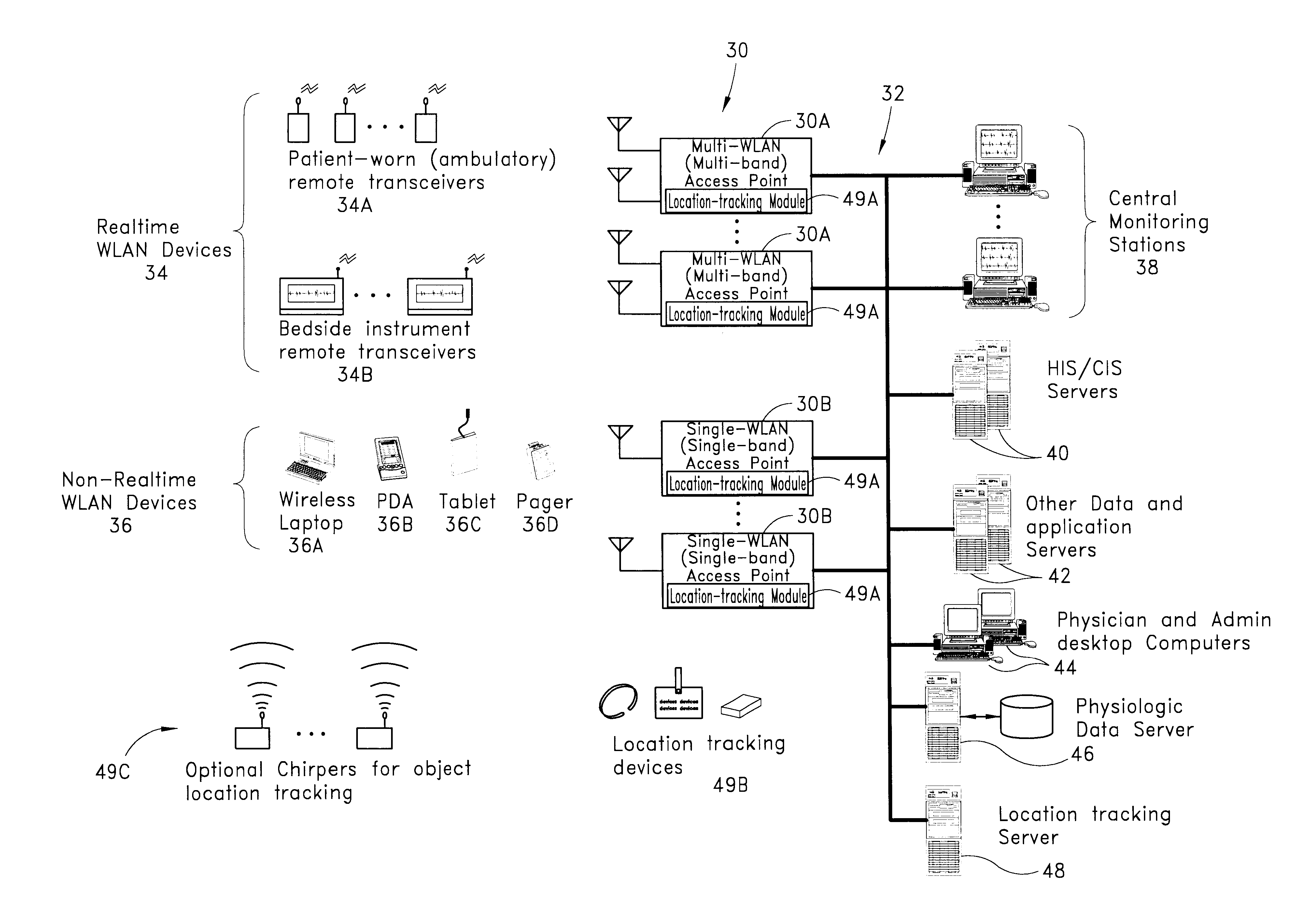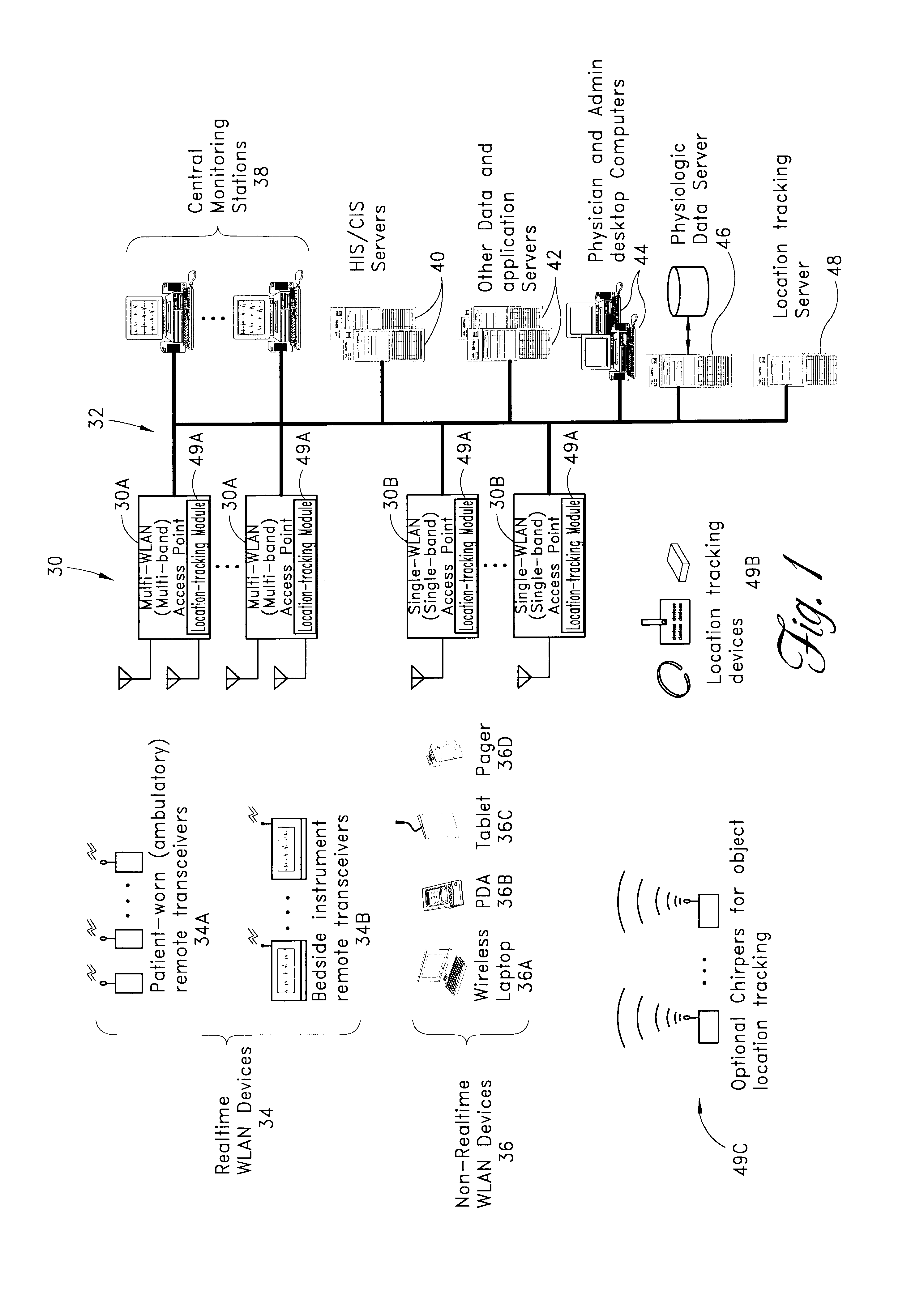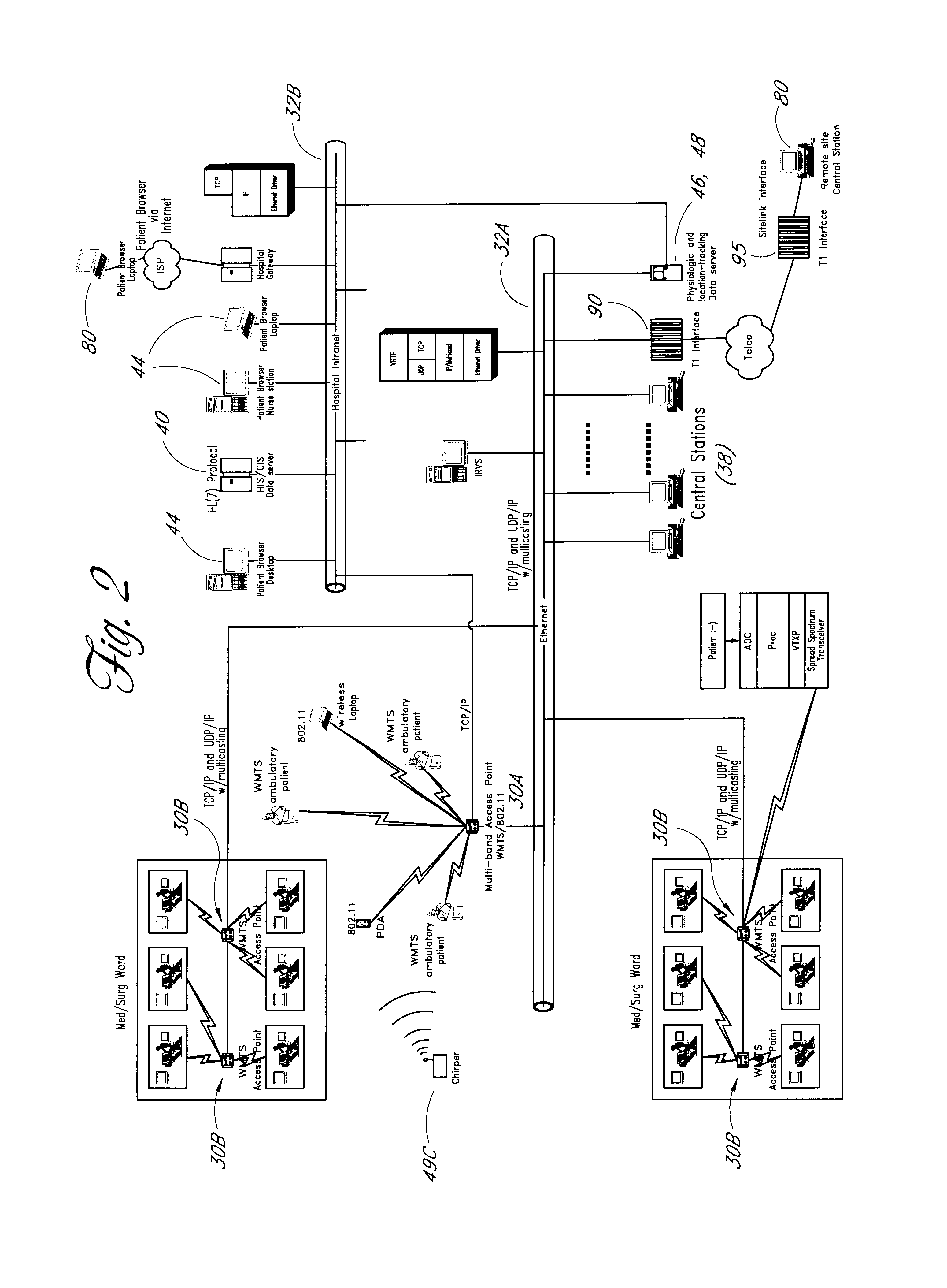Wireless LAN architecture for integrated time-critical and non-time-critical services within medical facilities
- Summary
- Abstract
- Description
- Claims
- Application Information
AI Technical Summary
Benefits of technology
Problems solved by technology
Method used
Image
Examples
Embodiment Construction
s
In addition to the patient monitoring, patient location tracking, and other functions set forth above, the system may be used to support a variety of other types of applications. Several examples of such applications are described below, each of which may be implemented through application software running on the hardwired network 32 combined with appropriate wireless devices using methods that are known in the art.
Staff / employee location. Hospital employees may be provided with badges or other devices that contain small, battery-powered location tracking devices 36D. Application software running on the network 32A may use these devices to keep track employee locations. The employee location data may, for example, be incorporated into a clinician paging or dispatching system to help identify the clinician best suited to handle a patient call or an emergency.
Equipment Tracking. As mentioned above, location tracking devices 36D may also be attached to or incorporated within various t...
PUM
 Login to View More
Login to View More Abstract
Description
Claims
Application Information
 Login to View More
Login to View More - R&D
- Intellectual Property
- Life Sciences
- Materials
- Tech Scout
- Unparalleled Data Quality
- Higher Quality Content
- 60% Fewer Hallucinations
Browse by: Latest US Patents, China's latest patents, Technical Efficacy Thesaurus, Application Domain, Technology Topic, Popular Technical Reports.
© 2025 PatSnap. All rights reserved.Legal|Privacy policy|Modern Slavery Act Transparency Statement|Sitemap|About US| Contact US: help@patsnap.com



